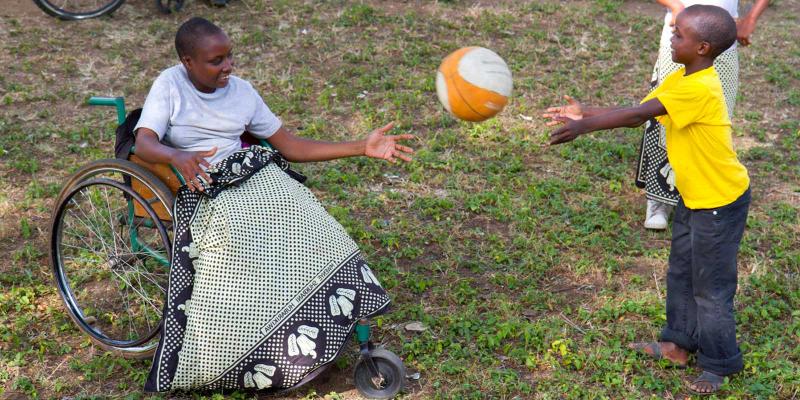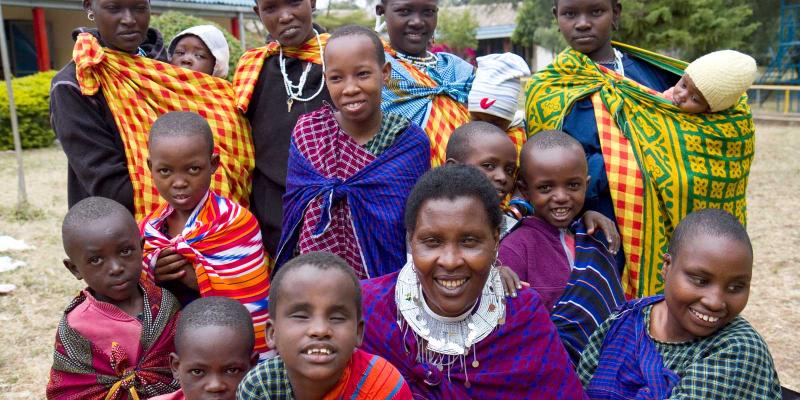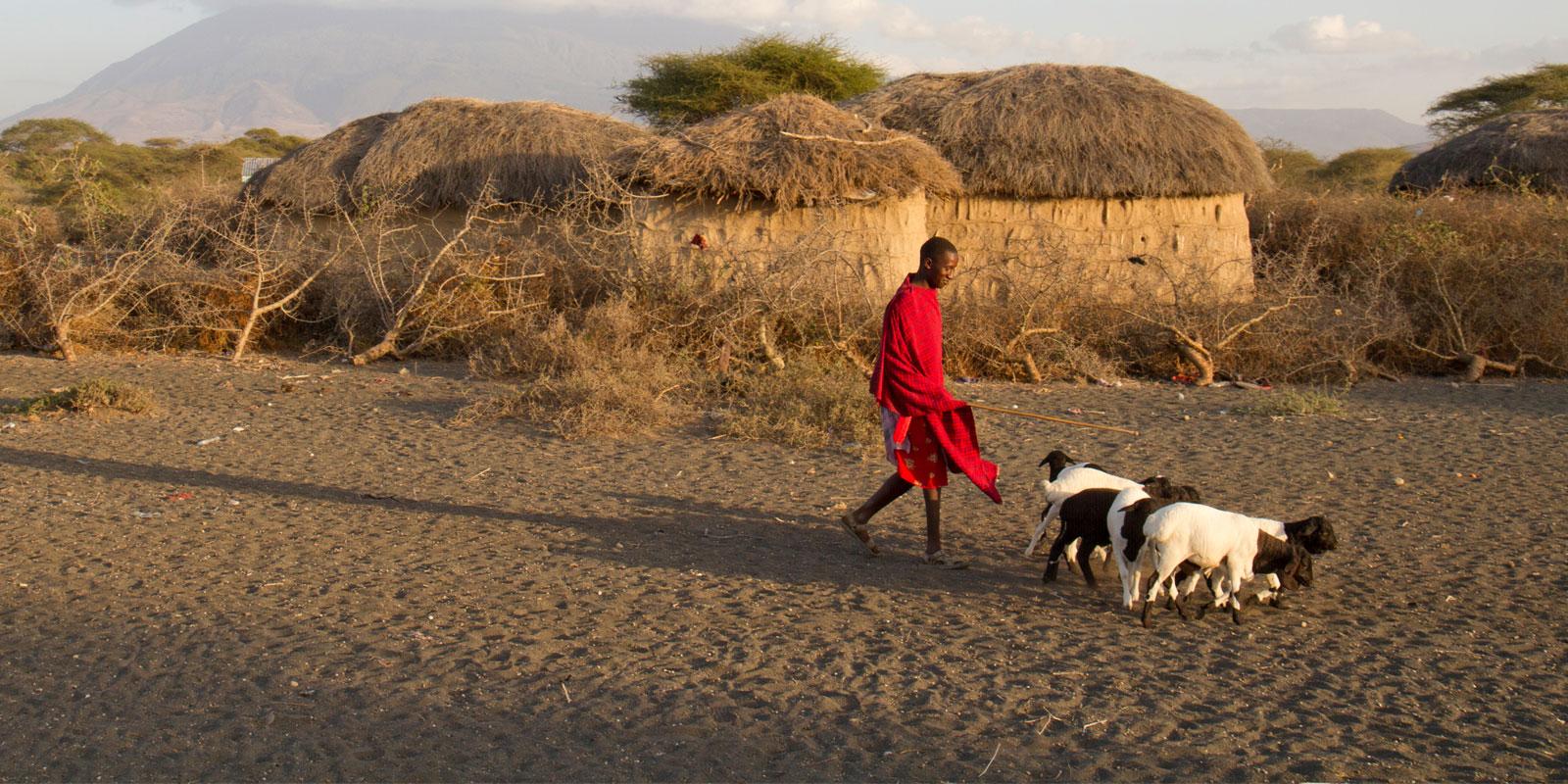
Lomniaki was born with his legs bending the wrong way. He found it difficult to sit up and wasn’t able to learn to walk. His dad didn’t want the others in the village to see him.
“I didn’t count. It was like I wasn’t a proper human being. But then Anna Mollel came and saved me. She gave me a new life, and I love her for that,” says Lomniaki, 15.
When Lomniaki was little, he used to lie on his own in the dark house all day long. He could hear the other children in the village laughing and playing outside.
“I don’t really know why dad didn’t want the others to see me, but I think he was ashamed of me. Mum didn’t think that way at all, but it was dad who made the decisions. Sometimes when dad was out with the livestock she would secretly carry me out and put me under a tree in the village for a while. Then I could watch the other children playing. But no-one played or talked with me,” says Lomniaki.
Hated dad
Lomniaki’s dad said he couldn’t start school.“He didn’t see the point in me going to school, because I’d never be able to look after the livestock anyway or get a job and earn money and help the family when I was older. I hated dad then, because he ruined my life.”
In the end, his mum Paulina couldn’t stand it anymore. She felt so bad at how Lomniaki was being treated that she decided to leave her husband. One day, she picked Lomniaki up on her back and they left the village for good. Paulina walked across the savannah to her parents’ village, and they were welcomed there by Lomniaki’s grandfather and his uncles and their families.
At first, Lomniaki thought that everything was much better. He met people who were kind to him and who talked to him. Mum or his uncles carried him out in the morning and laid him on a cow skin under the big acacia tree.
“But the other children soon got tired of being with me. They ran off. And when they went to school, I was left under the tree.
“It felt embarrassing not to be able to cope on my own, and I became more and more depressed. I gradually realised what my life would be like. I would never get to go to school. Never get a job. I thought it was unfair, and felt like I was worth less than others.
“My name Lomniaki means ‘blessing’, but I thought it must have been some kind of mistake. My name was probably meant for another boy. I was no blessing. I was a curse.”
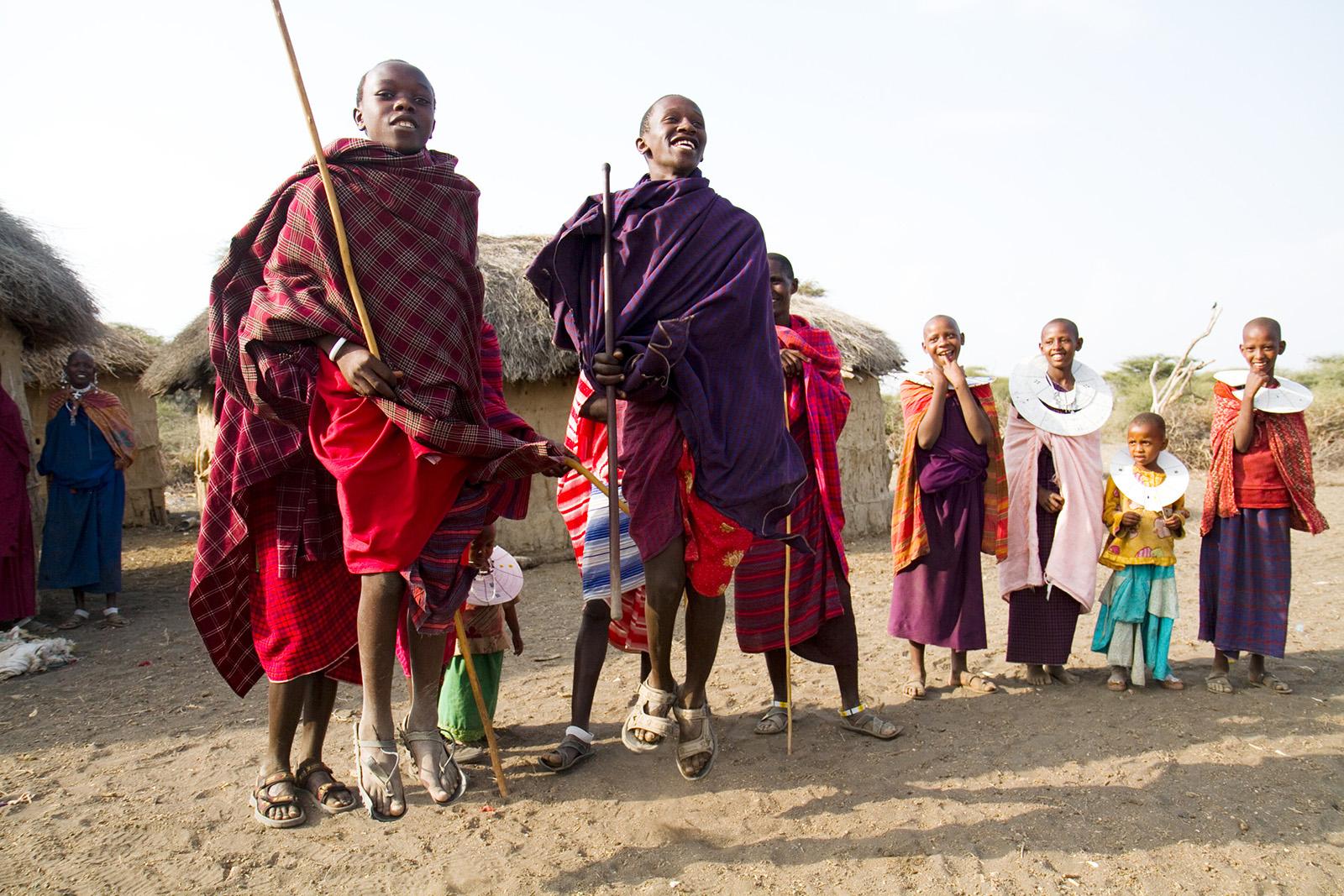
“Since having the operation, I can now dance with the others in the village. I never thought I would ever be able to dance with the others,” says Lomniaki. Here, Lomniaki is dancing Longwesi, which means Everyday. As part of the dance, the boys challenge one another to see who can jump the highest. Lomniaki is battling it out here with his friend Babu.
Anna came to the village
“I’ll never forget the day Anna Mollel came to the village for the first time. I was almost ten years old and lying under the tree. I’d never seen a car before, so I was petrified when I saw it coming closer. I screamed and cried. A woman got out and came up to me and sat down. She smiled and gently stroked my head and tried to comfort me. She said that I shouldn’t be afraid and that she had come to help me.”Anna told mum Paulina that Lomniaki could have an operation that would mean he’d be able to walk completely by himself, and that it was possible for Lomniaki to start school like all the other children.
“Mum was so happy and wanted Anna to take me straight away. But it wasn’t possible, because my uncles were not at home. Mum had to have her brothers’ permission, and Anna had to go without me.”
Anna came back to talk to the uncles. They sat under the acacia tree, and Anna explained to the uncles and grandfather about the operation and about Lomniaki’s future.
“I had never seen a woman dare to talk in that way to men before. And I’d never seen men listen like that to a woman there under the tree. Anna really was different,” says Lomniaki.
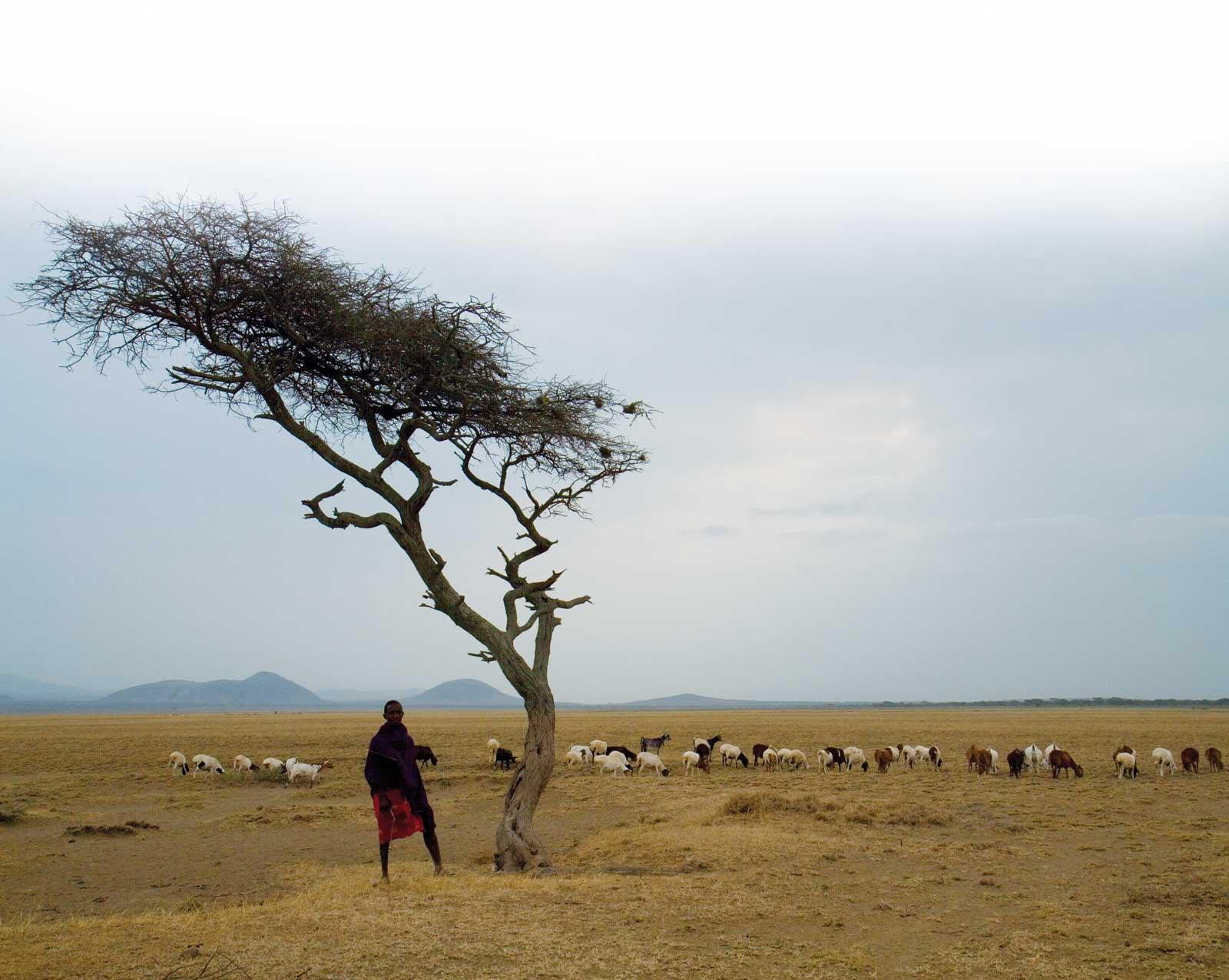
Time for the operation
Lomniaki’s family would contribute a little money to cover some of his food costs at the center. But when Anna returned, mum Paulina was distraught. She explained that the family had been unable to raise the money that was needed.“Anna looked at me and said: ‘Don’t worry Lomniaki. Of course I’ll still help you. We’ll sort it out somehow!’”
That same afternoon, Anna carried Lomniaki into the jeep. His journey to a new life had begun.
Lomniaki immediately settled in at Anna’s center. Anna and the house mothers did everything they could to make sure he was happy, and he finally got to start school and learn to read and write. He also learned about children’s rights at school.
“At home I’d been the only child with disabilities. I had always felt like an outsider. At the center I suddenly had loads of good friends. We could talk about everything, because we understood one another so well. I wasn’t lying alone like at home, there was always one of my new friends to push me round in a wheelchair so I could join in. For the first time in my life I didn’t feel different, I felt like one of the gang. It was a wonderful feeling!”
Lomniaki had his operation at the hospital in the city.
“The first week I had a lot of pain in my legs and was always falling over. But it got better and better, and soon I was able to walk with crutches. After practising for a year, I plucked up the courage to give up the crutches and I was finally able to walk by myself. It was the happiest day of my life!”
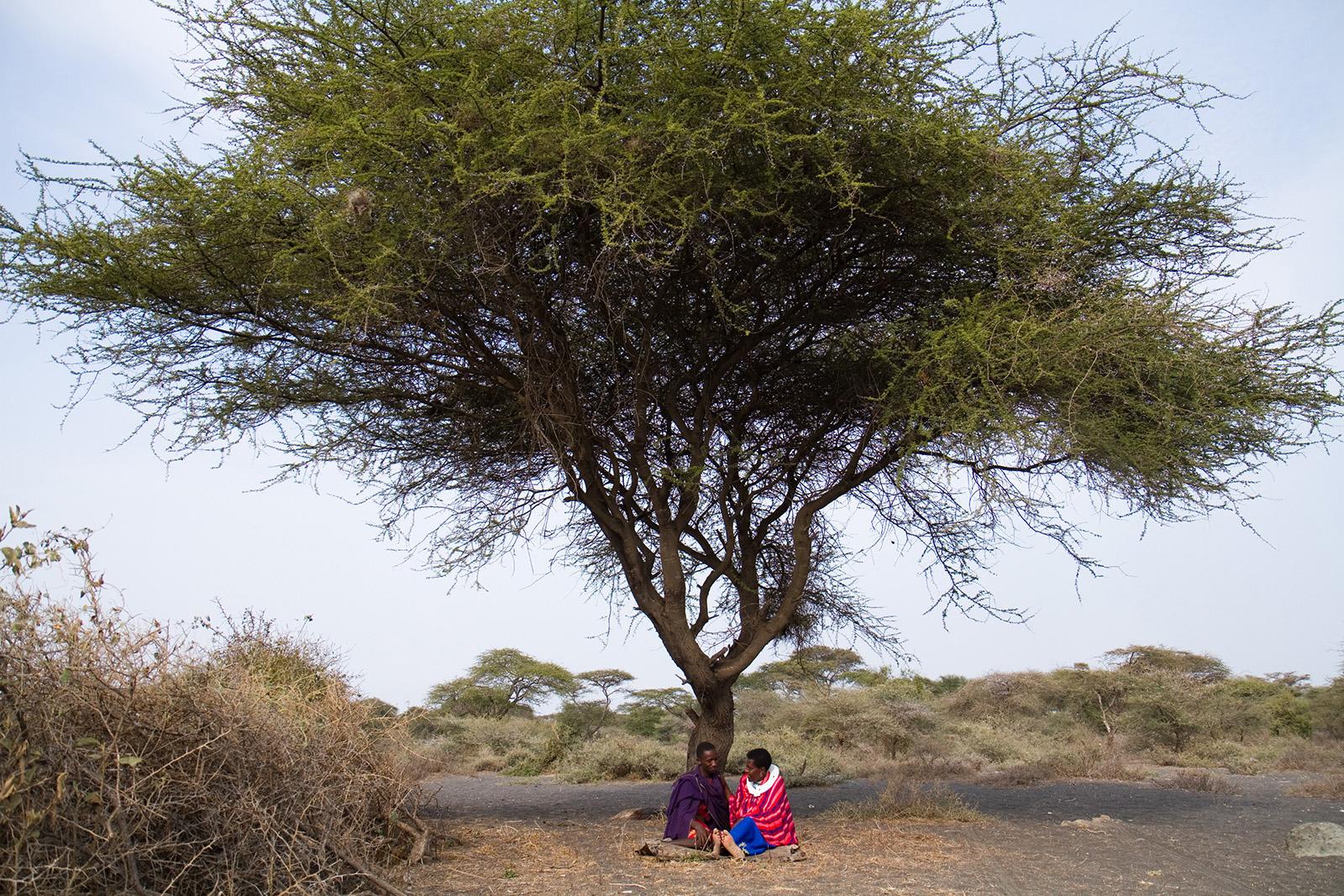
Anna Mollel and Lomniaki sitting underneath the acacia tree where Anna found Lomniaki, and where she convinced his uncles to let him have the operation. “It used to be the Tree of Disappointment, where I was left lying alone while the others played or went to school. But since Anna rescued me and my new, proper life began, I see it as a good place,” says Lomniaki.
Wants to be a lawyer
After another year, Lomniaki was so steady on his legs that he was able to leave the center. Anna then helped him start school. At first they thought of the school in his home village, but soon realised that he would have too far to walk.“My legs weren’t strong enough for me to cope with walking to school in the semi-desert, and I would have no chance of getting away if I came across wild animals. So Anna helped me start at a boarding school in the city instead.”
Lomniaki loves being at home in the village during school holidays, and these days he has no problem helping out with the livestock with his friends. But he still dreams of eventually going on to become a lawyer.
“I want to be like Anna and devote my whole life to fighting for the rights of vulnerable children, just like she fought for me. If Anna hadn’t made the long journey across the savannah, I would still be lying alone in a house or under the tree without being able to move. Instead she gave me a life that is worth living.”
Related stories
Långgatan 13, 647 30, Mariefred, Sweden
Phone: +46-159-129 00 • info@worldschildrensprize.org
© 2020 World’s Children’s Prize Foundation. All rights reserved. WORLD'S CHILDREN'S PRIZE®, the Foundation's logo, WORLD'S CHILDREN'S PRIZE FOR THE RIGHTS OF THE CHILD®, WORLD'S CHILDREN'S PARLIAMENT®, WORLD'S CHILDREN'S OMBUDSMAN®, WORLD'S CHILDREN'S PRESS CONFERENCE® and YOU ME EQUAL RIGHTS are service marks of the Foundation.




